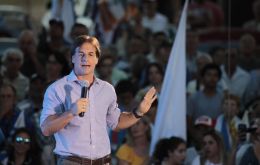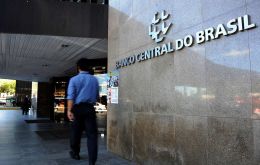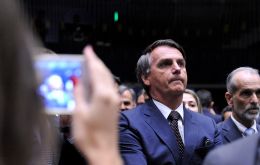MercoPress. South Atlantic News Agency
Tag: Presidential elections
-
Tuesday, November 19th 2019 - 23:41 UTC
Uruguay presidential elections: Lacalle Pou would widely win, according to polls

After a long election campaign, Uruguayans live the last days before the second round of the presidential elections, which will take place on Sunday, November 24. The latest polls before the ballotage positions the nationalist Luis Lacalle Pou as the next president of the country, breaking the hegemony of the left that the Frente Amplio (Broad Front) imposed in the last 15 years.
-
Monday, June 24th 2019 - 09:50 UTC
Argentina lines up for the August primaries; three leading presidential tickets

Months of intense political negotiations and last minute nerve breaking deals came to an end in Argentina on Sunday's zero hour deadline, when the different political groupings had to present to electoral authorities their list of presidential hopefuls, as well as future lawmakers.
-
Wednesday, June 19th 2019 - 09:59 UTC
Argentine political scenario prepares for the October presidential election

Argentine politician Sergio Massa, who recently pledged his support to the main opposition challengers to President Mauricio Macri, is in line to play a key role in the country's Congress if his new allies win national elections later this year.
-
Thursday, February 7th 2019 - 16:57 UTC
EU calls for free elections in Venezuela at International Contact Group meeting in Montevideo

The High Representative of the European Union (EU) for Foreign Affairs and Security Policy, Federica Mogherini warned on Thursday at the meeting of the International Contact Group in Montevideo, on a beside the president of Uruguay, Tabaré Vázquez, that the group does not seek a “direct negotiation” but a free, transparent and credible Presidential election in Venezuela.
-
Thursday, November 1st 2018 - 08:50 UTC
Brazil leaves interest rates unchanged at an all time low: reduced risks of inflation

Brazil’s central bank on Wednesday held interest rates at an all-time low less than a week after the victory of far-right lawmaker Jair Bolsonaro in presidential elections allayed fears of a currency sell-off.
-
Friday, October 19th 2018 - 08:38 UTC
Jair Bolsonaro 18 points ahead of Haddad, according to latest Datafolha survey

Brazil's extreme right presidential candidate Jair Bolsonaro is eighteen points ahead of Fernando Haddad for the runoff scheduled for 28 October. Datafolha released on the evening of Thursday 18 October its latest survey results for the Brazilian presidential runoff which showed Bolsonaro with 59% vote intention against Haddad's 41%.
